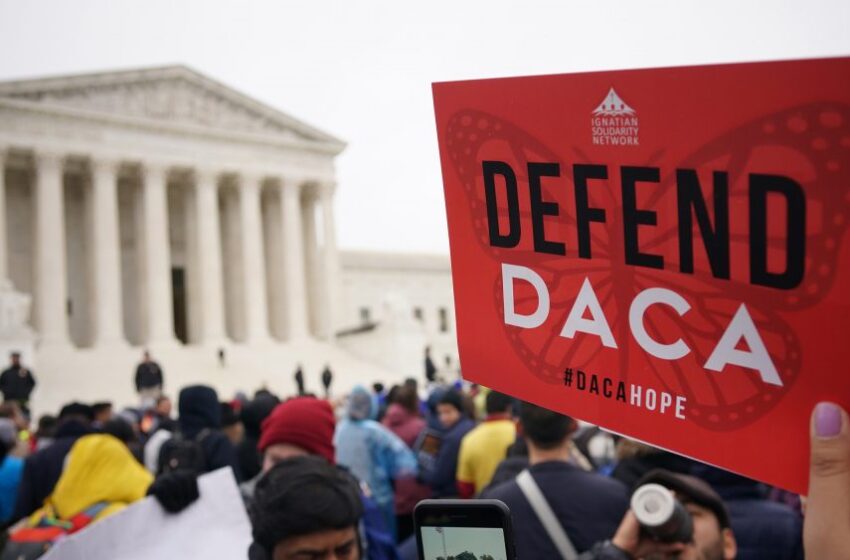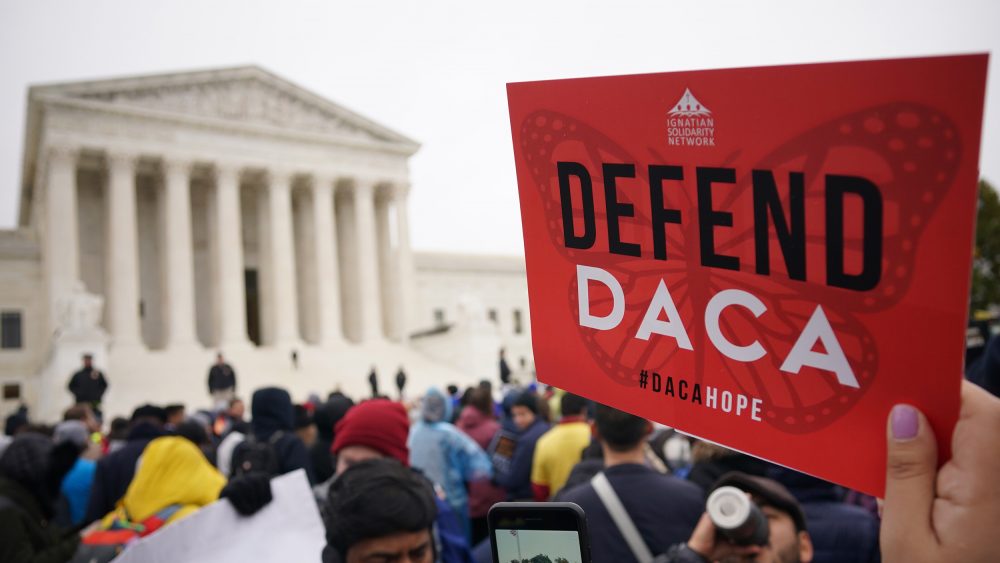DHS proposes rule to expand healthcare to Dreamers

 New rule redefines “lawfully present” to include undocumented immigrants brought to the US illegally as children
New rule redefines “lawfully present” to include undocumented immigrants brought to the US illegally as children
The US Department of Health and Human Services (DHS) has proposed a new rule redefining “lawfully present” to give effect to Biden administration’s bid to expand government-subsidized health insurance programs to nearly 600,000 Dreamers.
If finalized the rule would allow Dreamers as undocumented immigrants brought to the US illegally as children are called, to get health insurance through Medicaid and Affordable Care Act exchanges.
Read: Biden seeks to expand health coverage to Dreamers (April 14, 2023)
The proposed rule released on April 24 through the Centers for Medicare & Medicaid Services (CMS), would expand access to health care by reducing barriers for participants in the Obama era Deferred Action for Childhood Arrivals (DACA) program.
The proposed change applies to the Health Insurance Marketplaces, the Basic Health Program, and some Medicaid and Children’s Health Insurance Programs (CHIP).
“DACA recipients, like all Dreamers, are Americans, plain and simple. The United States is their home, and they should enjoy the same access to health care as their fellow Americans,” said HHS Secretary Xavier Becerra.
“Every day, nearly 580,000 DACA recipients wake up and serve their communities, often working in essential roles and making tremendous contributions to our country. They deserve access to health care, which will provide them with peace of mind and security.”
“Young people who come to this country—in many cases, the only country they have ever known as home—work hard to build their lives here, and they should be able to keep themselves healthy,” said CMS Administrator Chiquita Brooks-LaSure.
“The Biden-Harris Administration is committed to ensuring affordable, quality health care for all, and to providing DACA recipients the opportunities and support they need to succeed.”
The proposed rule, if finalized, would remove the current exclusion that treats DACA recipients differently from other individuals with deferred action who would otherwise be eligible for coverage under select CMS programs, according to a DHS press release.
If the rule is finalized as proposed, it could lead to 129,000 previously uninsured DACA recipients receiving health care coverage. Over the last decade, DACA has provided peace of mind and work authorization to more than 800,000 Dreamers, it said.
The proposed rule would amend the definition of “lawfully present” to include DACA recipients for the purposes of Medicaid and CHIP.
In effect, this would extend Medicaid and CHIP coverage to children and pregnant women in states that have elected the “CHIPRA 214” option for children and/or pregnant individuals, the Basic Health Program, and Affordable Care Act Marketplace coverage.
DACA recipients would need to meet all other eligibility requirements to qualify for coverage, the release said. Additionally, DACA recipients would be eligible for financial assistance through the Marketplace, such as advance payments of the premium tax credit and cost-sharing reductions if they meet all other eligibility requirements.
Read: HHS Releases Proposal to Expand Health Care for DACA Recipients (April 24, 2023)
If the rule is finalized as proposed, DACA recipients would qualify for a special enrollment period to select a qualified health plan through a Marketplace during the 60 days following the effective date of the final rule, it said.
The new rule has a proposed effective date for all provisions of November 1, 2023. CMS has requested comment from the public on proposed regulations, and specifically on the feasibility of this date and whether to consider a different effective date.
The White House had on April 14 announced Biden administration’s intention to expand government-subsidized health insurance programs to DACA recipients for the first time.

